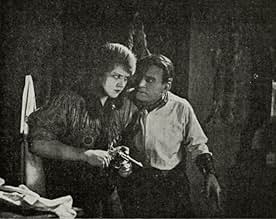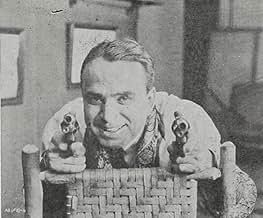Movies about urbanites who long to escape the stifling city life for the wide open wild spaces are extremely popular for those theater goers fantasizing such thoughts. Films such as 1991's "City Slickers" reflect that urge to go West, Young Man. The first film in cinema introducing the theme was Douglas Fairbanks' June 1917 "Wild And Woolly."
Anita Loos' brilliant comedy script has the Easterner Fairbanks dreaming about the Wild West, a time period in the 1880's where the local Natives were still free to enjoy their land and bank and train robberies abounded. Fairbanks is sent to a small Arizona town by his rail owner father to scout out the feasibility of running a spur off his main line. Fairbanks' character is an avid Old West fan, caught up in the hype of movie westerns he sees on a regular basis. The townspeople, knowing his passion, rig a false front before his arrival, complete with role players acting as bad guys.
"Wild and Woolly" pays homage to Edwin Porter's 1903 "The Great Train Robbery," complete with the gunshot dancing and the enactment of a money theft on a train.
Fairbanks had left the flailing Triangle Pictures a year before and was enticed by Paramount Pictures to set up his own production company, Douglas Fairbanks Pictures. He brought over from Triangle scriptwriter Loos and director John Emerson, who were instrumental in providing this western comedy the zip it delivers.
"Wild and Woolly" became Fairbanks' personal favorite. One of Fairbanks' biographers, Jeffrey Vance, in 2008 wrote the movie "is the finest of the surviving Fairbanks-Emerson-Loos collaborations and perhaps the best of the thirteen films he made for Artcraft," a distribution company set up for Mary Pickford films that Fairbanks had dovetailed on.































